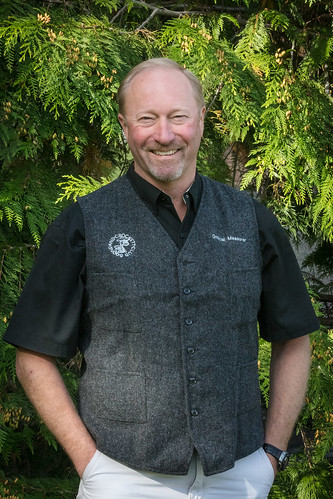Boone and Crockett Club chief of staff Tony Schoonen to give seminar at Auburn University Sept. 28
Article body
Tony Schoonen, chief of staff of the renowned wildlife conservation organization, Boone and Crockett Club, will visit Auburn University to present a seminar Friday, Sept. 28, at 11 a.m. at the School of Forestry and Wildlife Sciences.
Schoonen’s talk, “Understanding Conservation: Responsible Commercial Use of Natural Resources,” will explore the principles of wildlife conservation and the sustainable and ethical use of natural resources for commercial and recreational purposes.
Founded in 1887 by Theodore Roosevelt and George Bird Grinnell, the Boone and Crockett Club is the oldest wildlife conservation organization in North America and was responsible for establishing the fundamental principles of wildlife and habitat conservation.
The club’s originating principle and the root of its mission of responsible, ethical and sustainable use hunting, known as ‘fair chase,’ has become the cornerstone of the country’s contemporary hunting laws and conservation practices.
“The outdoor recreation economy is experiencing impressive growth. The industry is faced with the challenge of balancing this demand with the conservation principles that have successfully guided the consumptive use of wildlife for generations,” said Auburn University President Steven Leath.
“Mr. Schoonen offers valuable insight on these issues, particularly to the students and researchers focused on finding solutions to this very real challenge,” said Leath.
The Boone and Crocket Club championed the creation of landmark wildlife legislation, many federal agencies, and science and funding mechanisms for conservation, such as:
-
The first national parks, such as Yellowstone, Glacier, Denali and Grand Canyon;
-
Federal land management agencies, such as the U.S. Forest Service, National Park Service and the Bureau of Land Management;
-
Science-based wildlife management efforts and legislation including the National Wildlife Refuge System Act and the creation of the Cooperative Fish and Wildlife Research Units;
-
Fostered the establishment of key wildlife organizations such as the Audubon Society, Ducks Unlimited and the National Wildlife Federation.
The club currently supports academic research and teaching through grants, faculty endowments and the development of academic textbooks such as its most recent book published for university baccalaureate programs, “North American Wildlife Policy and Law.”
“In addition to the seminar, Schoonen will spend time with wildlife faculty, students and key stakeholders to learn about Auburn’s research and academic programs,” said Janaki Alavalapati, dean of the School of Forestry and Wildlife Sciences.
“We’ll also tour Auburn’s white-tailed deer and wild pig management research lab and discuss how the university is partnering with agencies and wildlife conservation groups to solve critical issues that threaten wildlife populations across North America,” said Alavalapati.
The free seminar, which is open to the public and all members of the campus community, will be held on Friday, Sept. 28, at 11 a.m. in the conference hall, room 1101, located on the first floor of the School of Forestry and Wildlife Sciences Building at 602 Duncan Drive, Auburn, Alabama.
Related Media
Related Links
Media interested in this story can contact Communications Director Preston Sparks at (334) 844-9999 or preston.sparks@auburn.edu.
The Auburn University College of Forestry, Wildlife and Environment is a flagship institution for natural resources-based degrees including natural resource management, geospatial and environmental informatics and sustainable biomaterials and packaging. The school serves as the backbone for Alabama’s $30 billion+ forest, wildlife and natural resources related enterprises. Its mission is to create next-generation professionals and leaders, to develop new knowledge and disseminate science-based solutions to our clientele to improve the social, economic and environmental well-being of citizens in Alabama and beyond.





